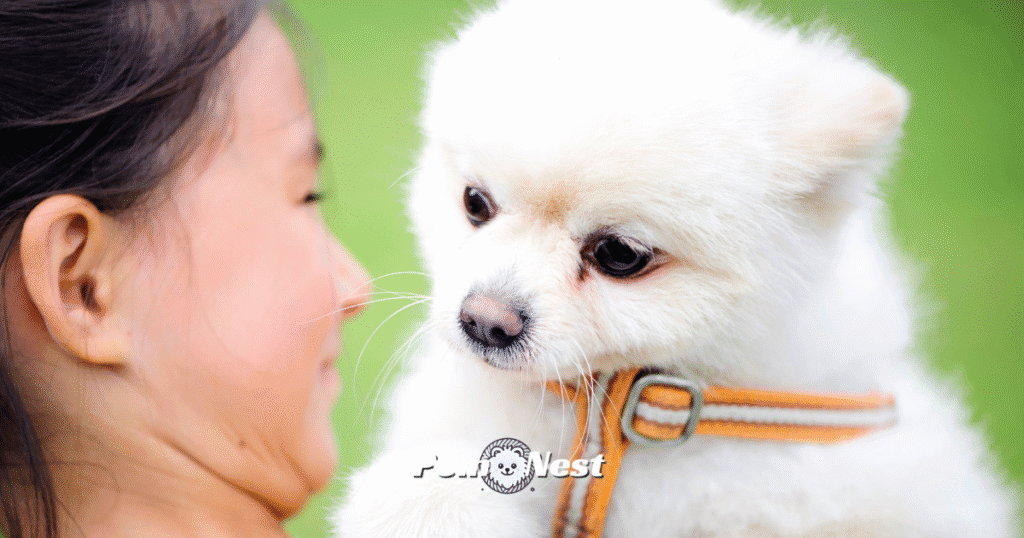Can a Pomeranian Be an Effective Service Dog? What Every Pet Lover Should Know
The question “Can a Pomeranian be a service dog?” may sound unusual at first. Many people imagine service dogs as large breeds like Labradors or German Shepherds. But the truth is, small dogs like the Pomeranian can also perform helpful tasks when properly trained. They might not push wheelchairs or support heavy weight, but they can still be life-changing for many individuals. Let’s explore how these tiny companions can provide big help in the real world. What Makes a Dog a “Service Dog”? Understanding the Basics According to the Americans with Disabilities Act (ADA), a service dog is one that has been individually trained to perform specific tasks for a person with a disability. These tasks must directly help with the disability, like guiding the blind or alerting someone with diabetes. There’s no rule that says the dog must be big. What matters is the dog’s ability to complete tasks. Unlike a therapy dog or emotional support animal, a true service dog has legal access to almost all public places in the USA. Restaurants, airplanes, buses, and stores must allow trained service dogs inside. The Air Carrier Access Act (ACAA) also protects their rights on flights. But the dog must behave well in public and be under control. Emotional Support vs. Service vs. Therapy Dogs – What’s the Real Difference? A service dog is trained to do specific tasks like alerting, retrieving, or guiding. A therapy dog visits places like hospitals or schools to comfort people. A emotional support animal provides comfort just by being present but doesn’t perform tasks or have public access rights. These differences matter legally and in real-life situations. For example, a Pomeranian may qualify as an emotional support animal if it simply calms anxiety. But if it alerts you to a sound or medical change, it could be trained as a service dog. A therapy dog like the Pomeranian might visit care homes and help others feel better. Each role has a different level of training and legal rights. Is the Pomeranian Breed Eligible for Service Work? Let’s Break It Down The Pomeranian may be small, but it’s smart, eager to learn, and full of energy. These traits are perfect for many types of support work. In fact, Pomeranian service dog training has grown in popularity in recent years. These dogs are often listed among the most obedient small dog breeds, especially for indoor lifestyles. Their size may limit them from doing large physical tasks, but they still qualify under the ADA if trained to do specific jobs. The law doesn’t care about size or breed. It only looks at whether the dog can help a person with their condition through real tasks. What Roles Can a Trained Pomeranian Actually Perform? A trained Pomeranian can do many jobs. One key area is emotional and mental health support. They’re used as psychiatric service dogs for people who have anxiety, PTSD, or autism. They can interrupt panic attacks, bring medication, or give deep pressure therapy by laying across a person’s chest. They are also helpful as medical alert service animals. With proper training, they can detect changes in blood sugar or even predict epileptic seizures. Their sharp noses and strong bond with their owners help them notice small changes that humans can’t. Surprising Ways Pomeranians Can Help With Daily Tasks You might be shocked by how useful a Pomeranian can be at home. They can fetch lightweight items like TV remotes or socks. They can bark or touch their handler to alert them to ringing phones, crying babies, or knocking doors. These are common tasks small service dogs can perform. Here’s a helpful table to show examples: Task Description Sound alert Notify owner of phone, bell, or alarms Medication reminder Nudge or alert at medicine time Fetch light items Bring small items like remote or keys Detect anxiety Sense rising stress and provide comfort Seizure alert Respond before or during a seizure Even simple things like climbing onto a lap and staying still can bring relief. These small daily actions can make a huge difference in someone’s life. Personality Traits That Make Pomeranians Shine as Helpers The Pomeranian is more than just cute. It’s bold, alert, and very aware of its surroundings. These dogs rank among the most intelligent dog breeds for therapy and emotional work. They’re quick to learn and eager to please. Plus, they form strong bonds with their owners. A good service dog temperament includes calmness, focus, and obedience. A Pomeranian, when properly socialized and trained, checks all these boxes. They’re alert but not aggressive, playful but focused when needed, and small enough to go almost anywhere without causing disruption. How Small Size Can Be a Big Advantage for a Service Dog One major reason portable dog breeds for support like the Pomeranian are preferred by some people is their size. You can carry them in a bag, keep them in your lap during flights, or walk them through crowded stores with no trouble. Their light weight makes them ideal for elderly handlers or people with limited mobility. They don’t need much space, making them perfect for apartments or small homes. And while they may not support someone physically, they can support emotionally or through behavior-based tasks. Can You Train Your Own Pomeranian to Be a Service Dog? Here’s How Yes, you can. Many people in the U.S. choose to do Pomeranian service dog training on their own. You start with basic obedience: sit, stay, come, and walking calmly. Then, you move on to task-specific training, like alerting to sounds or changes in behavior. Patience is key. These dogs respond well to reward-based methods like treats or praise. If you prefer help, there are professional trainers across the USA who specialize in trainable companion dogs. Just remember: consistency and calm training environments matter the most. The Real-World Limitations of Pomeranians in Service Roles Even with all their strengths, Pomeranians have limitations. They’re not suitable for jobs like pulling wheelchairs or helping with balance.

